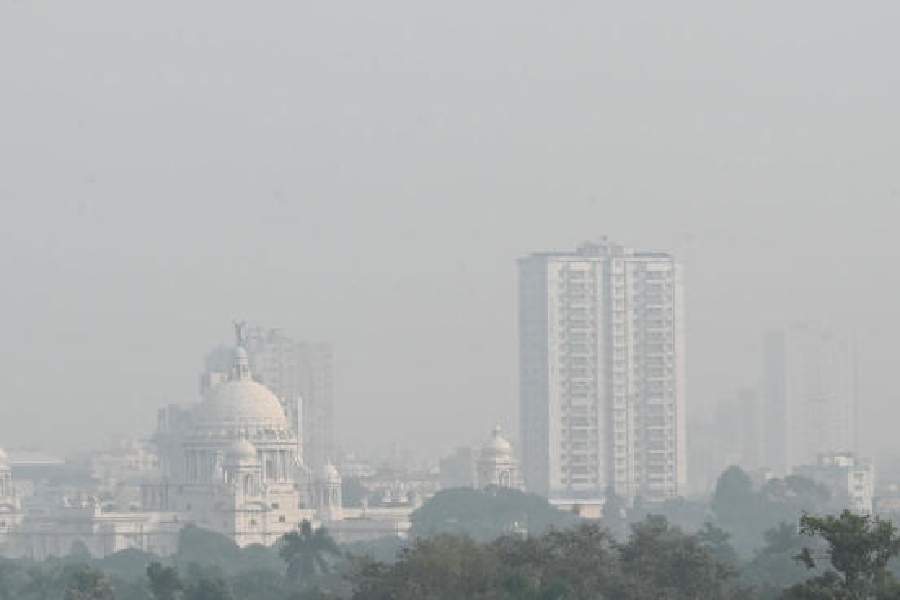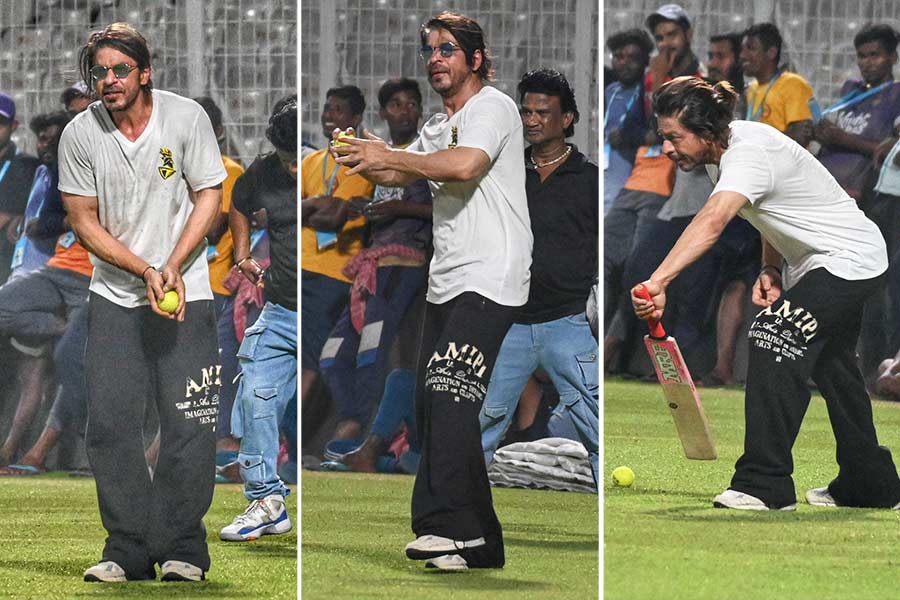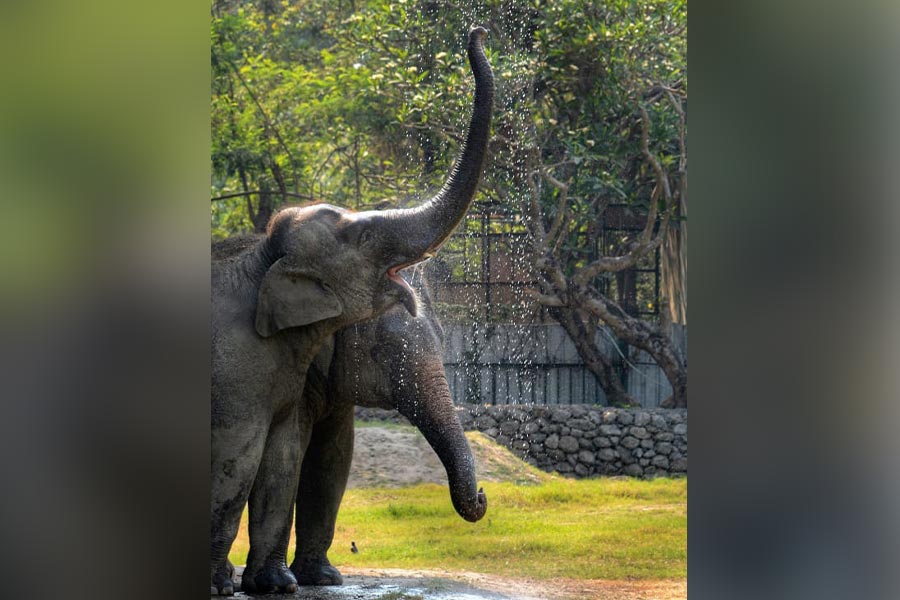The air quality dropped to “poor” in five monitoring stations in the city on Tuesday in what could be the start of another season of poor or worse air quality.
At 7pm on Tuesday, the air quality in stations in Ballygunge, Bidhannagar, Fort William, Jadavpur and Victoria Memorial was poor. Two other stations, Rabindra Bharati University and Rabindra Sarobar, reported moderate air quality. There are seven continuous air quality monitoring stations in Kolkata.
According to the Central Pollution Control Board (CPCB), “poor” air quality can cause “breathing discomfort to most people on prolonged exposure”.
The prominent pollutant in all the five stations that recorded poor air quality was PM 2.5, a fine particulate matter that is less than 2.5 microns in size.
Doctors said the fine particles can enter the lungs and other organs. They can trigger a number of health issues. Worsening air quality is of particular concern to people with existing diseases like asthma and chronic obstructive pulmonary disorder, said doctors.
Scientists said a drop in temperature and wind speed traps pollutants — released by human activities and other sources — closer to the ground.
Stronger winds in summer blow away pollutants. Higher temperatures also warm up the air. The warm air rises up and takes away the pollutants. This process of dispersal slows down with a drop in temperature as winter approaches.
The drop in temperature and the slowing down of the wind speed traps pollutants in the air closer to the ground. This increases the exposure level of people to poor air.
Arup Halder, a pulmonologist at Calcutta Medical Research Institute (CMRI), said people should avoid going out for morning walks.
“Go out for a walk in the late morning or afternoon. Use a mask during walks whenever the air quality drops to moderate,” said Halder.
Air quality management experts said regular watering of the city’s roads, identifying hotspots and framing action plans to curb pollution in them and preventing waste burning are some of the steps that could help curb the pollution.
Abhijeet Chatterjee, a professor at the Bose Institute, said the authorities should be very strict about curbing all open burning in the city.
“Open burning still happens. The authorities must use all resources to stop this. This burning during morning or evening, which is still common, completely vitiates the air and the impact remains for a long duration,” he said.
Chatterjee is also an advisor to the Kolkata Municipal Corporation, for management of the city’s air quality.
He said he had suggested that the KMC waters the roads twice a day.
“The surface becomes dry as the temperature drops in the evening. Watering the roads twice is necessary. This will prevent the re-suspension of road dust,” Chatterjee said.
Anumita Roy Chowdhury, an air quality management specialist, stressed on identifying hotspots, preparing an action plan and executing it.
“Kolkata has seven monitoring stations. They help identify the hotspots of pollution. The sources of pollution have to be identified and then measures should be taken to curb those sources,” she said.






